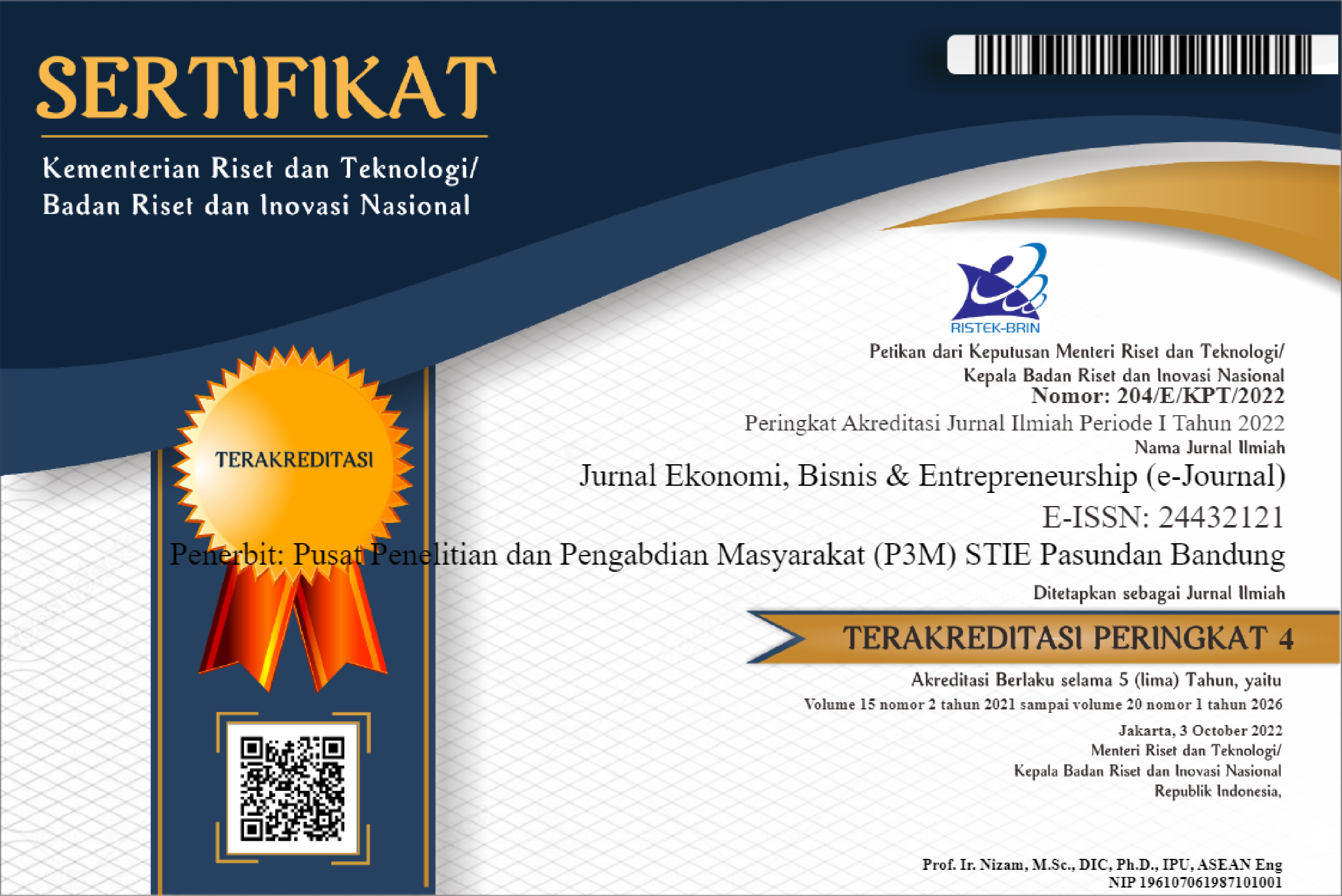Contextual Factors, Individualism Value, and Theory of Planned Behavior That Affect Student Entrepreneurial Intention in Indonesia
DOI:
https://doi.org/10.55208/jebe.v17i1.305Keywords:
theory of planned behaviour, individualism value, novelty, contextual support, entrepreneurial intentionAbstract
This study integrates predictions from the theory of human values and combines contextual support with the theory of planned behavior (TPB) as a form of research renewal. The main purpose of this study is to investigate the mechanism by which internal factors in humans (individualism values) and contextual factors (contextual support) with entrepreneurial intentions use a sample of 200 students or who have graduated in Indonesia. This study uses the Entrepreneurial Intention Questionnaire (EIQ) to measure the theory of planned behavior, Portraits Value Questionnaire (PVQ) to measure individualism values, and the entrepreneurial support model (ESM) to measure contextual support. The data analysis method uses Partial Least Square (PLS) - Structural Equation Modeling (SEM). The results showed that individualism values (self-enhancement, and openness to change) had a positive and significant effect on students' entrepreneurial intentions. Contextual support (perceived educational support, perceived relational support, and perceived structural support) has a positive but not significant effect and the theory of planned behavior has a positive and significant role on student entrepreneurship intentions. Self-enhancement and openness to change cannot be mediated by Subjective Norms on student entrepreneurship intentions.
Downloads
Downloads
Published
How to Cite
Issue
Section
License
Copyright (c) 2023 Fadhil Arrasyid

This work is licensed under a Creative Commons Attribution-NonCommercial-ShareAlike 4.0 International License.








